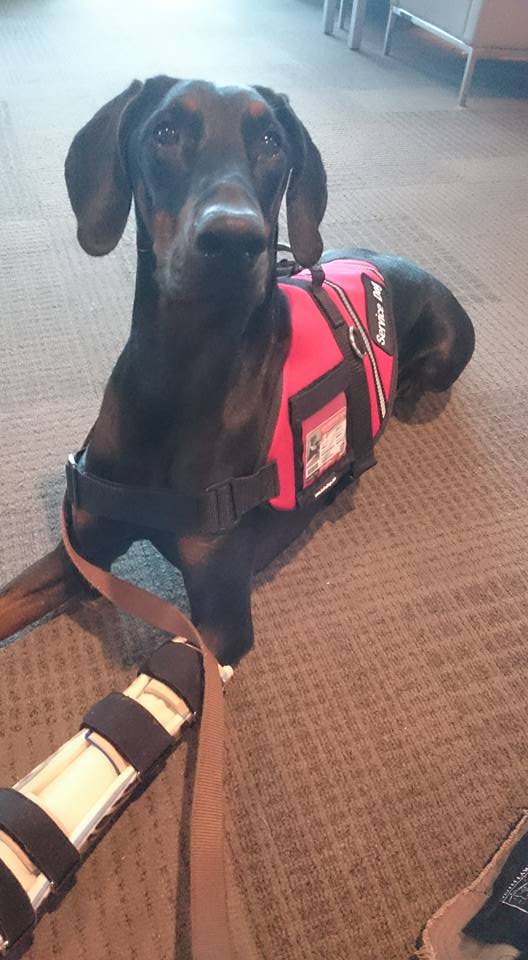This one is going to get kind of heavy and rant-y, so steel yourselves (or, just leave now and go read this instead). But to be honest, I don’t really care if it gets heavy, or turns into a rant, because I am tired and I am angry. So here’s a thing about me, and it isn’t a thing I talk about a lot, but it’s definitely no secret – I believe that we can only get rid of the stigma if we are open about it: I suffer from mental illness. I have a fairly severe anxiety disorder, I suffer from mostly-manageable depression, and I have insomnia; and not in like a “sometimes I have a hard time sleeping” kind of way, but in a “one time I didn’t sleep for two weeks straight and my body panicked and produced too many histamines and I had an allergic reaction to myself. On Valentine’s Day.” kind of way. I have also tested on the aspergers spectrum, although I’ve never formally done anything about it – I cope fairly well and don’t see the value in going through all the doctors tests and such at this point in my life.
All of this to say, I sometimes have very bad days (or weeks or months). None of this is to garner sympathy, as I manage just fine, and have a very happy and full life. But, in order to have that happy and full life, I do a lot of things to manage my illness. Things like taking medication; trying different kinds of therapy (CBT, MBCT); doing yoga (less often than I should); going on retreats; trying to practice mindfulness; and I have registered my dog as an Emotional Support Animal (which falls in a similar category with service dogs, though obviously she’s different than a guide dog, say, or a dog who alerts for glucose levels in diabetics).
The rules in Canada and the US are quite vague, insofar as registering a dog as an ESA. There is no real formal process. That said, you dog generally needs a) to be up to date on their vaccines, b) to have some kind of certification (Athena has her SJA Therapy Dog Certification, though I’ve heard that the Canine Good Neighbour exam is sufficient), and c) to have some kind of identification (most commonly a vest; Athena has her vest and an ID badge with an ID number through the OSDR). Then, most importantly, the person needs an official doctor’s note stating that they would benefit from an ESA.
FACT: Most People Do Not Know They Qualify For A Service Animal Or Emotional Support Animal.
Service Dogs,Emotional Support Dogs and Therapy Dogs can benefit people with disabilities associated with many diagnoses, including: Arthritis Ataxia (poor balance) Autism Blindness or Impaired Vision Deafness or Impaired Hearing Diabetes Cardio/Pulmonary Disease Cerebral Palsy Physical mobility Issues Multiple Sclerosis (M.S.) Psychiatric Disabilities Seizure Disorders (Epilepsy) Severe Allergy Alert Spina Bifida Spinal Cord/Head Trauma Stroke,Cancer Anxiety Depression Bipolar disorder Mood disorder Fear/phobias Post-Traumatic Stress Disorder Suicidal Thoughts/Tendencies Adjustment Disorder Generalized anxiety disorder Social anxiety disorder Panic disorder Separation anxiety Dissociative Disorders Factitious Disorders Eating Disorders Impulse-Control Disorders Mental Disorders Due to a General Medical Condition Neurocognitive Disorders Mood Disorders Neurodevelopmental Disorders Personality Disorders Psychotic Disorders Sexual and Gender Identity Disorders Sleep Disorders Somatoform Disorders Substance Related Disorders This is just a partial list of disabilities that qualify under ADA. – from the Official Service Dog Registry website
That’s all fine and good. And in a professional setting, I’ve never had an issue taking Athena anywhere with me. I don’t use her in work-mode too often – frankly, she’d be more of an annoyance than a service if I took her grocery shopping, for example – but when I do take her with me, I’ve never had an issue with employees or anything like that.

However, I do have random people on the street stop me all. the. time, saying things like “What does she do?”, or “What do you need a service dog for?” once they’ve given me a good up and down. I don’t particularly want to talk to some stranger about my health, but I try to be polite; normally I’ll give a smile and say, “She’s an emotional support animal and helps me with my mental illness.”
Nine times out of ten, the response is something to the effect of, “Haha, *wink* I could use an emotional support animal too!”, or “My dogs supports ME emotionally!”, or “You don’t really NEED a support animal though, you just wanted to take her with you, right? I’m not judging, I’d do it too!”
It is really, really difficult to know what to say in those moments without being totally rude.
I’ve even had people tell me that ESA dogs need to perform a service to be official. And I’m with you, but here’s the thing:
When I’ve woken up from such a vivid nightmare that I can’t figure out what’s real and what isn’t and I can’t breathe, Athena helps me ground myself and remember that I’m safe. When I have already checked if the front door is locked eight times but I cannot sleep unless I check again because what if I am remembering wrong, Athena lets me let it go, because I know she’ll wake me up if anyone is at the door. When I’m having a depressive episode and I can’t stop crying and I can’t stop thinking about self harming, she is glued to my lap and comforts me. When I am walking around and I can’t shake that feeling that someone is following me and I’m not safe, I trust her senses more than I trust my own.
Do not tell me my dog doesn’t perform a service. Do not tell anyone that their ESA doesn’t perform a service.
All of this to say, let’s please remember that not all illness is physical, and not all service dogs perform the same services. Let’s try to be polite and respectful. Let’s remember that me having my dog with me does you zero harm, but does me a lot of good. Let’s remember that my dog napping calmly at my feet on the airplane is a whole lot less disruptive than me having a panic attack.
We’re all just doing the best we can, the best way we know how.
1) Yes, an ESA and a service dog are different things and have different requirements. I apologize if that wasn’t initially clear.
2) The grey areas surrounding the laws on ESAs does make it easy to abuse the system; however, not all illness is visible or physical, and I don’t think it is any individual’s right to question if they are sick enough to deserve an ESA, except their doctor, which I mentioned in the original post.
3) Being registered and having an ID for an ESA is NOT mandatory; I just find it easier for the general public who aren’t as aware of the process.
If I have missed anything or am uninformed about something, I welcome all feedback in comments. I am by no means an expert on service dogs, I simply know my experiences and am making an important point about how we handle mental health.
Please check out this site for the most accurate information possible.
Here is a really great graphic on the value of service dogs for veterans, but a lot of it applies to mental illness as a whole. I recommend reading it through and giving it the thought it deserves!




Our leaders are acting like lemmings.
As someone who also struggles with mental illness, I completely understand the frustration and anger faced when dealing with the stigma. And the way the author describes the genuine support and service provided by her Emotional Support Animal is so relatable. It’s essential for people to realize that not all disabilities are visible, and dismissing the importance of service dogs for mental health is hurtful and ignorant. Let’s all strive to be more understanding and respectful towards one another’s journeys.